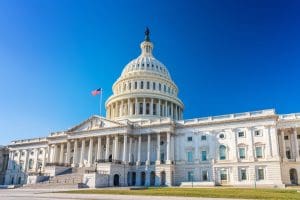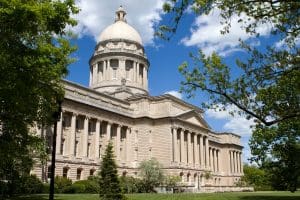The economic crisis caused by the coronavirus pandemic poses a triple challenge for tax policy in the United States. Lawmakers are tasked with crafting a policy response that will accelerate the economic recovery, reduce the mounting deficit, and protect the most vulnerable.
To assist lawmakers in navigating the challenge, and to help the American public understand the tax changes being proposed, the Tax Foundation’s Center for Federal Tax Policy modeled how 70 potential changes to the tax code would affect the U.S. economy, distribution of the tax burden, and federal revenue.
In tax policy there is an ever-present trade-off among how much revenue a tax will raise, who bears the burden of a tax, and what impact a tax will have on economic growth. Armed with the information in our new book, Options for Reforming America’s Tax Code 2.0, policymakers can debate the relative merits and trade-offs of each option to improve the tax code in a post-pandemic world.

Improving Tax Treatment of Structures Offers Commonsense Way to Boost Competitiveness
The U.S. tax system is biased against capital investments. Ending these tax penalties would boost economic output, productivity, and employment.
5 min read
Maryland Digital Advertising Tax Litigation Focus Moves to State Courts
Digital advertising taxes are poor tax policy and legally dubious in the extreme. Maryland has a long fight ahead of it—all for the right to enact a tax for which lawmakers struggle to even articulate a rationale.
5 min read
Inflation-Indexing a Useful Tool to Protect New Jersey Taxpayers
Households across the country are struggling with the effects of high inflation. Lawmakers in New Jersey are looking to combat an unlegislated tax increase by indexing the state’s individual income tax code for inflation, something all states should consider.
3 min read
Will Kentucky Build Upon Its 2018 Reforms This Year?
As Kentucky policymakers make final decisions on tax relief this year, they should make the most of this opportunity to return excess tax collections in a manner that would also enhance the Bluegrass State’s prospects for long-term economic growth.
5 min read
Windfall Profits Tax Wrong for American Energy
As oil prices skyrocket, a windfall profits tax targeted at oil company profits could punish domestic production and increase reliance on imports.
3 min read
Russia’s Ukrainian War Could Impact EU Carbon Proposal Too
Given the uncertainty surrounding the war in Ukraine, future trade relations with Russia, and the overall CBAM revenue structure. The EU will need to adjust policy when challenges arise as it looks to increase its role in fiscal affairs through new own resources.
5 min read
To Stimulate R&D Investment, Stop Penalizing it in the Tax Code
In his State of the Union Address, President Biden called for leveling the global research & development (R&D) playing field by increasing federal R&D spending, specifically by asking Congress to pass the bipartisan United States Innovation and Competition Act (USICA).
3 min read
Accounting for the Global Minimum Tax
Double taxation impacts the ability of companies to invest valuable things like improving their supply chains, developing new products, and hiring workers, and it can be fixed if the minimum tax uses a country’s own tax rate.
8 min read
Post-Versailles Declaration: Tax Policy in the Future of European Energy Security
The unified EU signing of the “Versailles Declaration” is a historic break from the past. Russia’s war against Ukraine has made energy (and related tax policies) an even more urgent focus for the EU.
6 min read
Iowa Enacts Sweeping Tax Reform
Even if 2022 sees many tax reforms, the scope of Iowa’s tax relief measures is likely to stand out. With the most recent reform package, Iowa lawmakers have made a significant investment in a more competitive tax climate for an increasingly competitive era.
6 min read